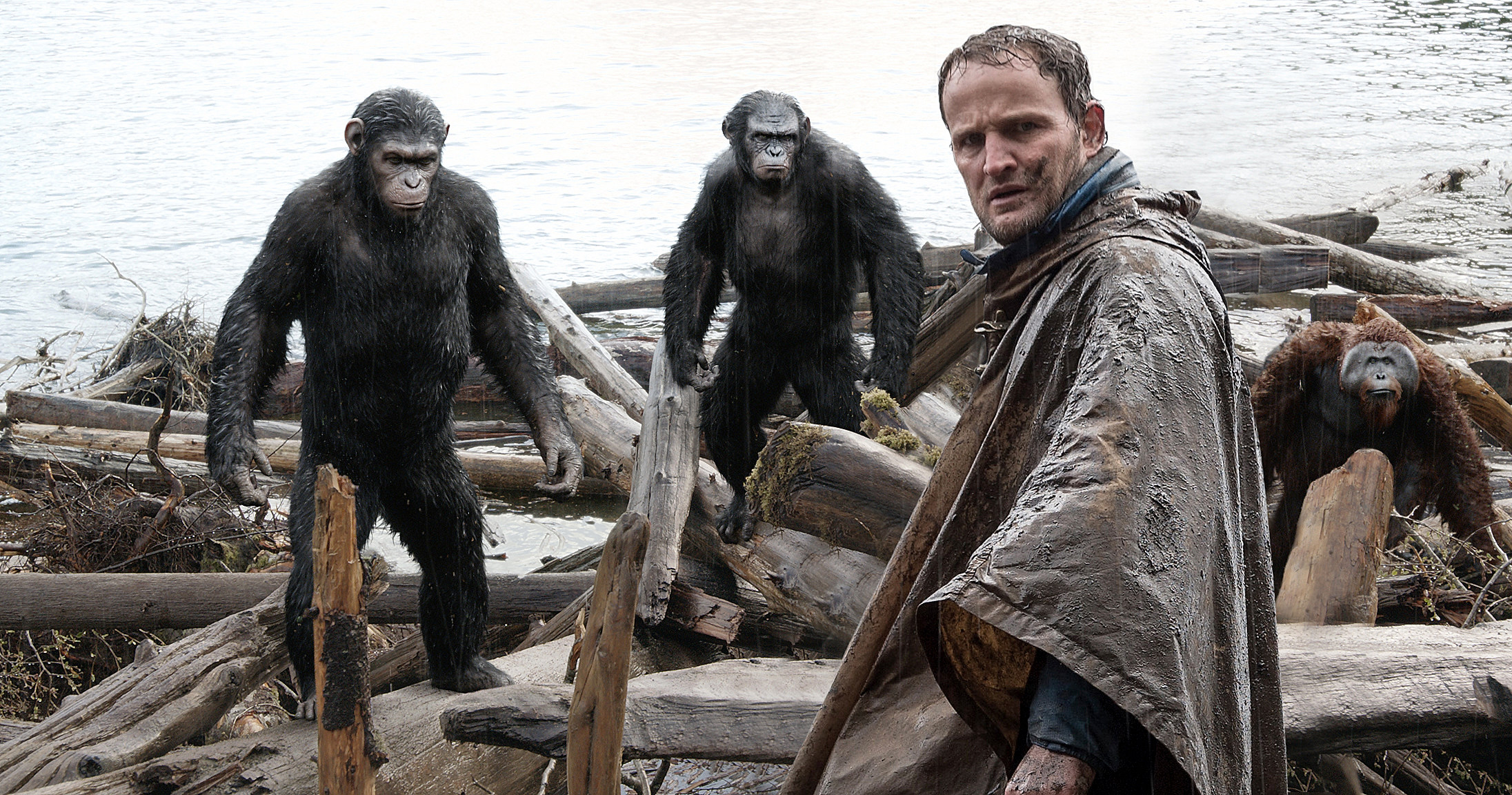Dawn of the Planet of the Apes (4 out of 5 Stars)
Directed by: Matt Reeves (Cloverfield, Let Me In)
Written by: Mark Bombac (The Wolverine), Rick Jaffa, and Amanda Silver (Rise of the Planet of the Apes)
Starring: Jason Clarke, Gary Oldman, Kerri Russell, and Andy Serkis as Caesar
About three years ago around this time Rise of the Planet of the Apes took an old franchise, and gave it new life. Back in 2001 Tim Burton attempted to put a modern spin on this film with Mark Wahlberg in the Charlton Heston role, but this film needed to break from the original series, and create its own brand and it has.
Dawn starts ten years after the events from Rise of the Planet of the Apes. The humans who worked in the lab where the apes were being held captive and tested ended up creating a disease which wiped out a large percentage of the human race. Dawn focuses on two groups, the apes who broke free led by Caesar, and the humans who survived led by Oldman's character. The apes are thriving, creating their own community, they thrive, and can adapt to the change. The humans are searching for a power source, their ability to adapt is limited. When the two come into contact for the first time in many years there is a test of will power, who can be trusted, proving flaws in both human and ape exist.
Dawn and Rise are both strong because of their use of stop motion visual effects to create the apes. Burton's film did not advance any aspect of the original franchise, but rather flat lined in a stagnant manner, doing or making the apes be costumes. In Dawn the focus is mostly one the ape community, and this stop motion technology helps create one of the most powerful stories about these entirely human creatures.
John Dalberg-Actor said "Power tends to corrupt and absolute power corrupts absolutely." This quote rings true showing the flaws in both man and ape, resonating through fear, and is timely lesson for today's politicians and people in positions of power. There is an inherent fear, with which this films highlights, and draws sharp contrasts to way in which love and trust can and should penetrate leaders. This can be seen in Caesar's second in command Koba, and Gary Oldman's Dreyfus. These two characters fear each other, and use their power to create war. Rather than civil discourse they take things to an extreme breaking the societies built. Dawn succeeds because of this message.
Dawn also succeeds because Andy Serkis is a brilliant performer, and while some will not give him credit because of the stop motion aspect, he is acting! Serkis gives life to Caesar who in the first film in this series had the strongest level of humanity, being raised by James Franco's character. Caesar is the true leader of the apes, and with every facial expression, physical action you lose yourself in the belief that Serkis is Caesar, and that there is no distinction between human performance and the ape on the screen. Serkis is one of the hardest working, and most talented actors working today. While I hate clamoring for Oscar attention this performance deserves to be recognized.
Matt Reeves is new to this franchise as the director, but his battle sequence at the end is visually masterful, and he did a solid job with this film. I do think the only hinderance to this film is the pacing, somewhere along the lines the middle falls flat, and the film stretches the story too much. I also wish I got to know more about some of the key humans like Oldman's Dreyfus who felt like a central character, but also felt pointless, or wasted.
Beyond these small gripes, Dawn is a fantastically deep film, on that takes the evolution of humanity, and explores it through multiple aspects. Dawn is a strong second chapter, and proves to be a fascinating journey.

No comments:
Post a Comment